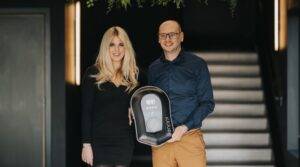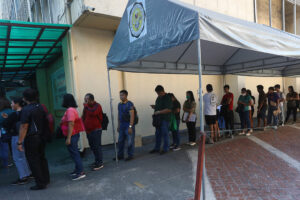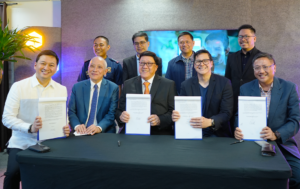Government documents often sparkle with noble ideas. For example, AmBisyon 2040, a government manifesto spearheaded by the National Economic and Development Authority (NEDA), portrays a life for Filipinos in 2040 that is matatag (resilient), maginhawa (comfortable), and panatag (peaceful). The manifesto’s 2040 goal is “a prosperous middle-class society where no one is poor.”
The Management Association of the Philippines (MAP) brought AmBisyon 2040 to the action phase. Its Shared Prosperity Committee, chaired by De La Salle University professor, Ben Teehankee, formulated a Covenant for Shared Prosperity and encouraged companies to sign the covenant and implement its provisions. The gathering of signatures is proceeding but not at the pace desired by the Committee. Organizations are keen on understanding first the ramifications of a commitment to the Covenant.
The Covenant’s prologue states, “We believe we can address inequality in our society and enhance the dignity of human beings, while building prosperous businesses.” The Covenant has attracted like-minded groups to its banner. One such group is the Diwa-Kapwa (D-K) Advocates for a Filipino management ethos. A basic tenet of D-K resonates with the covenant’s prologue. The tenet depicts an iterative three-step cycle that bolsters shared prosperity: the personal growth of employees leads to productive work which, in turn, leads to a profitable company.
The D-K Advocates is composed of former presidents and officers of the People Management Association of the Philippines (PMAP). Their shared view about the role of business and human capital in nation-building energizes the group’s projects, including the publication of three books on kapwa (fellowmen) and diwa (spirit), roundtable discussions for business owners, and a public conference that was attended by more than a hundred people at the Asian Institute of Management in Makati on Nov. 21.
The D-K Conference focused on a Filipino management ethos geared towards shared growth and prosperity. During the Conference, true-to-life experiences about the transformative power of spirit-led and people-first leadership were described in detail by the representatives of thriving companies, including Thousand Oaks Packaging, Piandre, Pandayan Bookshop, Human Nature, Glacier Megafridge, Globe Telecom, Unilab, and CDO Foodsphere.
“Spirit-led” and “people-first” are the two sides of the same coin. A spirit-centered leader builds on the ground of compassion, linking all members of an organization to reach group goals. This common ground emanates from the spirit or unifying essence shared by all people. A people-first leader prioritizes the dignity and sanctity of human life. Every decision must enrich the competencies, virtues, and well-being of people. By advancing group cohesion (spirit-centered) and individual improvement (people-first), the leader moves the entire company closer to its objectives.
The D-K management ethos can lead to a redesign of organizations and communities. Sonny Coloma, a leading light of the D-K Advocates and a former spokesperson of the Aquino Administration, explains the impact of diwa or spirit on organizations. Coloma says, “A spirit-led organization is designed to achieve continuous improvement, as well as enable paradigm shifts that expand the parameters of human achievement as exemplified by our D-K firms.”
The D-K emphasis on concrete experiences spurred deep thought on the part of Conference participants. One participant, a general manager, said, “I was deeply touched by the Diwa-Kapwa Conference. We do not have anything like that in our company, but I want to start. Before we even have social responsibility projects like tree planting, I want to do something like this. Mag-iisip ako kung ano ang gagawin namin (I will think about what we will do),” Another participant shared with her family over lunch how amazed she was with the presentations and what companies are doing.
Many Conference participants were struck by the living wage received by Human Nature employees; the hiring and development of people with little education and union organizing backgrounds by Thousand Oaks; the vision for workers of Pandayan Bookshop that enables them to own houses and send their children to good schools; the continuous release of salaries by Piandre despite being closed down by government authorities during the pandemic; and the unwavering support of CDO Foodsphere for employee welfare. The positive returns on the investment in people by these companies are evident in their growth and dynamism.
A Filipino management ethos is rooted in Philippine culture and indigenous Filipino psychology. It employs Tagalog terms that may need translation into other Filipino languages. Fortunately, the language problem may not be as big a stumbling block as we imagine. In another forum organized by the public sector for HR officers, Grace Abella Zata, a stalwart of the D-K Advocates, talked about Diwa-Kapwa leadership. She asked the audience if they could relate to Tagalog terms like kapwa, loob (interior), and diwa. A Department of Education superintendent from Marawi quickly responded and said that the gathering can relate because the people also feel the need for spiritual and moral renewal.
The MAP publicized the D-K Conference through the association’s social media channels. The MAP logo also appeared in the announcements released by the D-K Advocates. Secretary Rogelio “Babes” Singson, MAP’s Management Person of the Year for 2024, gave the keynote address for the Conference.
MAP’s endorsement for groups like D-K Advocates is an authentic act of patriotism. In MAP’s statement about its core values and principles, patriotism is expressed in this manner, “We affirm our deep love for our country, and our commitment to civic duty and concern for the common good, driven by our pride in our history and our heritage.”
Gerardo “Jun” V. Cabochan, Jr. is a member of the MAP Shared Prosperity Committee. He is the managing director of Pandayan Bookshop.


















